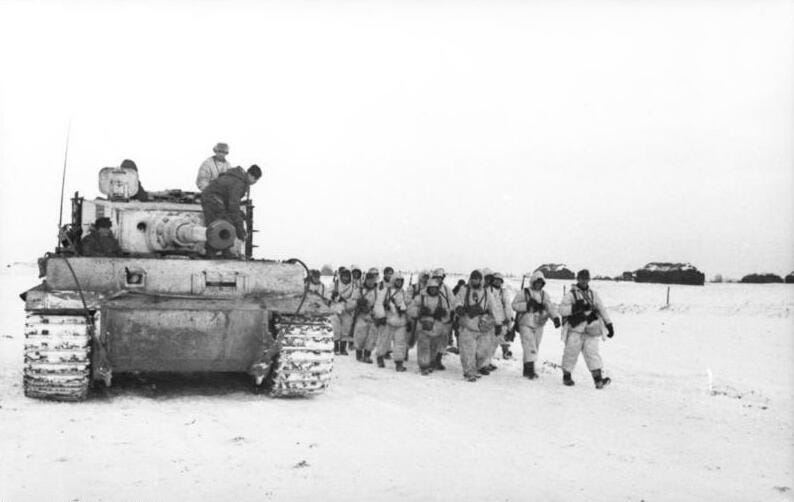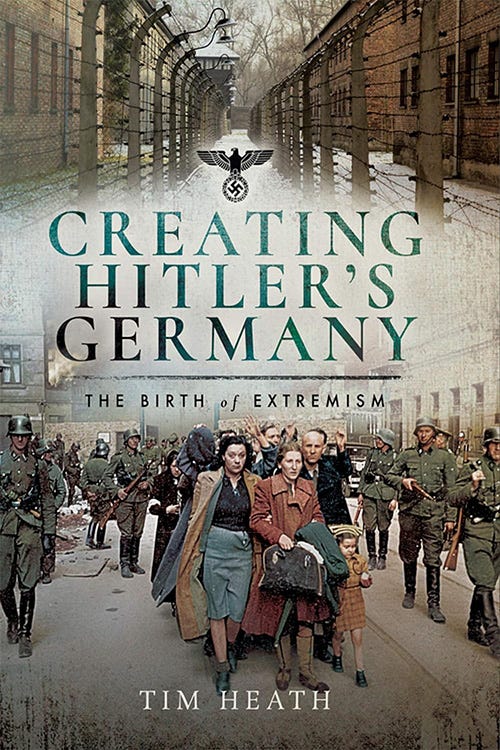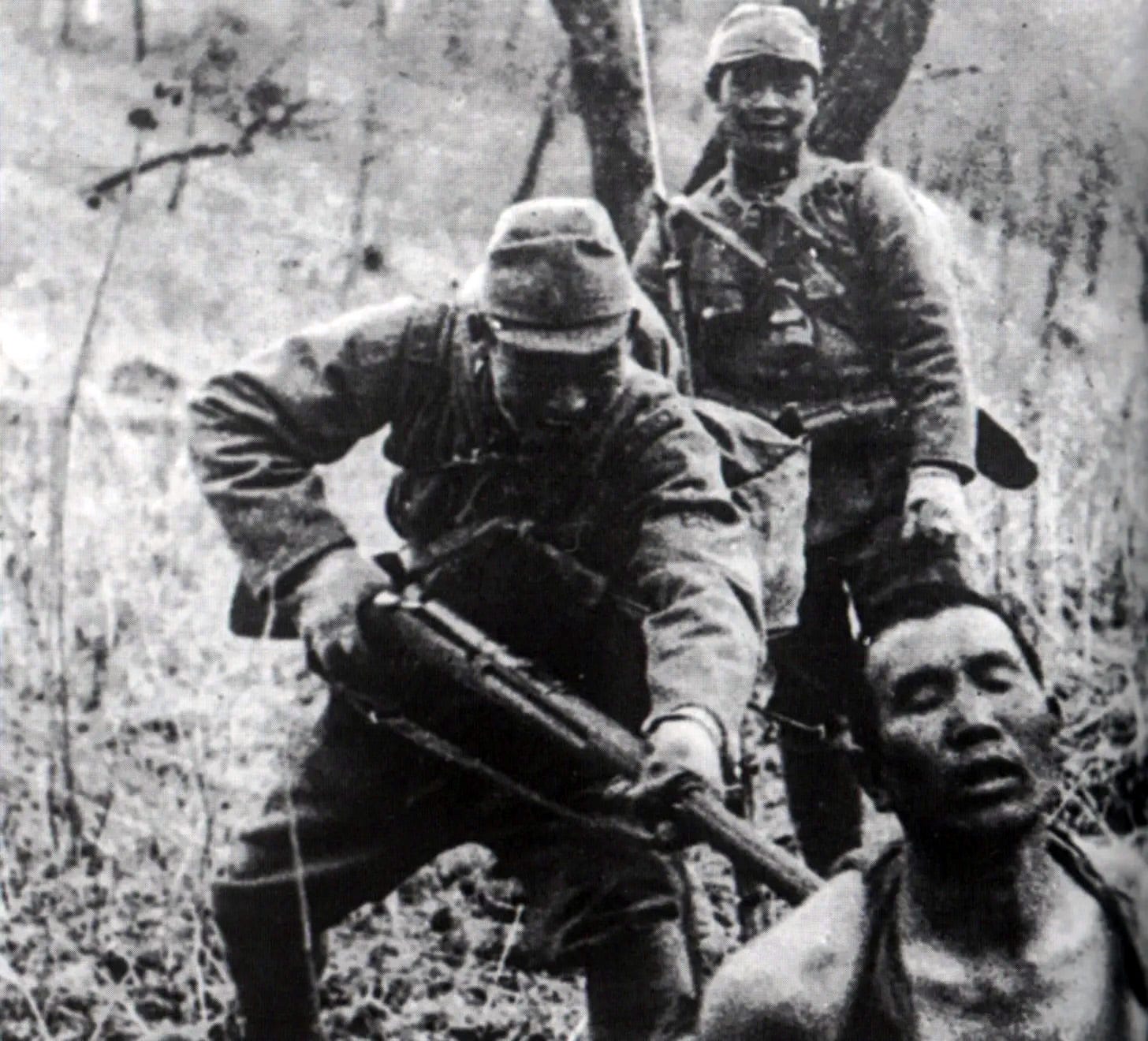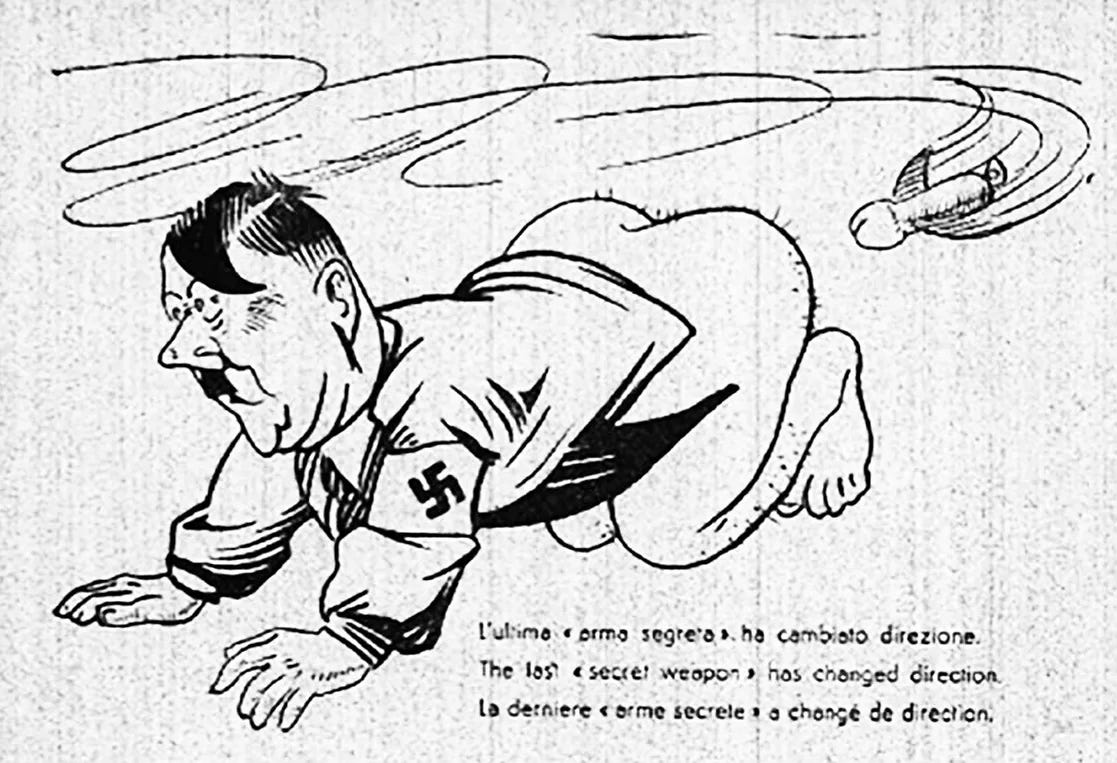'Creating Hitler's Germany'
From a wide ranging collection of memoirs of the German experience of the Nazis, this week's excerpt are the recollections of a Eastern Front tank gunner
Tim Heath specialises in finding German accounts of the experience of living under the Nazis. His previous books have focused on women just as much as men and have drawn on previously unpublished diaries and memoirs. In Creating Hitler's Germany: The Birth of Extremism he uses many different perspectives to build a picture of their diverse responses to Hitler and Nazism.
We checked the tracks of our Tiger and found human remains caught in the track links along with pieces of clothing.
His interest in exploring the attitudes of ordinary men and women right through from the period before the war to their post war reflections - with an emphasis on how they changed over time. There are many graphic and detailed accounts here. They including quite a few from Russian and Polish people who suffered under German occupation - who describe events that is unlikely many Germans would admit to. This volume has to be taken as a whole.
The following excerpt covers three separate memories from one man:
The twenty-year-old Max Diemer had joined the fighting on the Russian front in the summer of 1943. He had served with the 3rd SS Panzer Division Totenkopf as a loader in a Tiger 1 tank crew. He recalls:
My task was simply to work with the gunner. I had the job of loading the 8.8cm ammunition into the gun. I was brought in to replace a guy who became badly injured through his own fault. He had somehow trapped his hand in the gun breech of the 8.8cm cannon. He got his ticket home and some felt he had done this on purpose because he was pining for his woman back home in Germany. I did not know him, so I cannot make any judgement.
In battle, I was instructed on whether to load high-explosive or armour-piercing ammunition into the gun. The type of ammunition used depended on whether you were fighting tanks or just shooting targets such as buildings or enemy troop emplacements. High explosive worked against troops very well. Usually we fired just one shot into troop emplacements and this was often enough to kill or cause significant casualties. When we fired shells into their positions, some would try and break away. We would use our machine guns to shoot them down.
Often, if civilian dwellings got in our way, we drove the Tiger through them.
Often, if civilian dwellings got in our way, we drove the Tiger through them. I recall on two occasions we came upon civilian dwellings on the Kharkov advance. We knew there were people inside, probably hiding, so we drove through the building. We just went through it like a knife would cut through butter. It mattered not that we had killed people who were hiding inside. We never gave that a second thought.
We pulled up during the advance, shortly before night fell the one evening. We checked the tracks of our Tiger and found human remains caught in the track links along with pieces of clothing. We would take a bayonet and use it to get rid of any body parts caught up in the machinery. One occasion was particularly sobering as one of the crew found a small child’s teddy bear trapped between the track links. For a moment it hit you, a short pang of remorse or something. You had to pull back your emotions, as we could not permit these emotions. Emotions were, in this context, only for the weak.
The race we were engaged in fighting was not human in my eyes. We spoke of them as one might speak of a cockroach in a food shop. We destroyed them without pity in many cases. We did encounter a heavy psychological burden, yet we swore an oath that this was our duty to our Fuhrer. I did my duty, I can say that much.
People argue today that we were criminals, yet our enemy were criminals, too, at times. We came across small cemeteries where we had buried our dead of previous battles. Partisans had been there and tore down the wooden crosses and defecated upon the graves. Some of the remains had been exhumed from their resting places. After that we checked our own dead and removed anything of value, such as wedding rings and things. If we could, we returned them to the families ourselves. The practice of vandalising the graves of the dead continued on until well after the war though.
...
Max Diemer reflected on the war in the east:
I soon learned to not only fear the eastern territories but to hate it too. During the last summer there I sat with my back against the Tiger, thinking of home. I looked at the scars on our tank, all the grazes and scratches made by rounds that had impacted our tank but not penetrated it. I remember thinking, ‘when is our luck going to run out in this place?’ At that moment, I watched as a butterfly fluttered around on the warm breeze. It settled upon the gun barrel. I just watched it and thought how nice would it be to be that insect. I could just fly away out of here of my own free will.
There is nothing left of them, just bits of charred flesh and bones. The turret sails high into the air before falling back to earth.
The next day we were in the thick of the fighting again. We encountered many of the Russian T-34 tanks. We knew by this stage in the war we were by no means superior to them. They could kill us, as I had seen our tanks hit by fire from T-34s. The problem is, when you get hit, if you survive the strike of the round, you then only have seconds to get out. If you are badly hurt, or trapped by debris, it is often impossible to get out. On countless times, I have heard crews inside our tanks burning to death. You can’t see them, but you hear their screams; agonising screams.
I watched one tank that was hit. The crew hatch lifted and two rolled out, falling onto the ground with their clothing on fire. They writhed in agony on the ground, desperately trying to put the flames out. A third crew member exits the hatch, falls from the Tiger, and flames now appear through the crew hatch. They are just trying to drag each other away from the burning Tiger, when bang! The whole thing just explodes and the escaping crew are blown to oblivion in the blast. There is nothing left of them, just bits of charred flesh and bones. The turret sails high into the air before falling back to earth.
The mere thought of dying in that horrible manner is enough to make me consider renouncing the oath I had taken on becoming a soldier. I question my own discipline and tell myself, ‘you are a fool!’
...
Max Diemer’s luck did run out when, three weeks later, his tank received a hit from a Soviet anti-tank gun at close range. He recalls of this incident:
I only remember the sound of the shell hitting our tank. It was the loudest, most concussive force I can remember. We had been hit from the rear by a weapon we had not seen behind us. As we drove past they nailed us good. I don’t remember much about it, as I was rendered unconscious in the initial impact of the shell. I remember it going black inside, and it was difficult to breathe for the smoke. I felt like my body was on fire.
I woke up at an aid post, was transported to the rear, and flown out of the place on a Ju 52 transport. When I arrived in Germany, I was then sent to a hospital. My whole body hurt, yet I seemed to have everything still. I checked they had not blown my balls and dick off [he laughs]. Then I noticed my right arm, and all that remained was a stump; the rest was missing. They had to cut it off as it was no good, they told me. Other than the arm, I had suffered some deep cuts to my face and head, and lots of bruising.
I asked after the others [his crew] and they told me they were all dead. I had been pulled from the Tiger by a nearby crew, who spotted the Russian gun shooting us. They fired a high explosive into the Russians and then came to our aid. That was very brave of them, as tanks nearly always blew up after being hit. I owe my life to that crew, but never learned who they were. They pulled me out of the Tiger, made sure I was in good company, and then pushed on.
The unit I had been with literally fought itself to annihilation. It ceased to be a division by the end of the war. Of course, I was questioned after the war about it all. I was treated as a common criminal by the Allied authorities, who were actively seeking SS personnel. They tried to convince me I had been a war criminal. Only God can judge me on that. I think in war we are all criminals. Men behave differently in war to what they do in peace and that is always the way.
© Tim Heath 2020, 'Creating Hitler's Germany: The Birth of Extremism'. Reproduced courtesy of Pen & Swords Publishers Ltd.
Other Tim Heath books that have been featured on
World War II Today…
The Jungle War against the Japanese
From the Veterans Fighting in Asia 1941-1945 - The Japanese Perspective
The best way to kill yourself if wounded and facing capture was to use a sidearm. Place the barrel in your mouth until the muzzle of the pistol is firmly against the roof of the mouth in the centre. When the trigger is squeezed the bullet will destroy the brain in an instant.
From the Veterans Fighting in Asia 1941-1945 - The British Perspective
The only bit I wasn’t looking forward to was going into that fucking jungle. You couldn’t see jack shit in there: a Jap could be right by you and you’d never see the little yellow cunt until he stuck his bayonet in your ribcage and by that point it was over. I heard all about their tactics and the methods they used.








